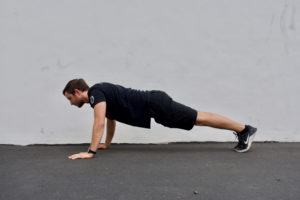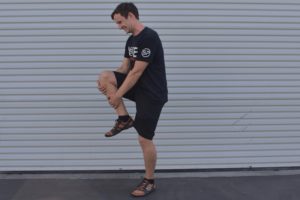We’ve all had nights where our sleep was less than fulfilling. Tossing and turning, our mind just won’t stop. It’s a really uncomfortable situation and the day after is the absolute worst! Feeling recovered is an essential part of any day-to-day necessities especially when we account for performing our best at work, training, or parenting. In this blog, we’ll go over 5 ways to sleep better to promote health and recovery.
- Turning off screens and dimming lights.
Our circadian rhythm is our body’s internal clock. Before the invention of artificial-especially fluorescent- lighting humans had to rely on the sun to complete brain-stimulating activities. Our bodies adjusted to that but now in a world with constant light and noise stimulation our internal clock has a harder time telling us when it’s time to start winding down. One of the best ways we can sleep better is by consistently shutting off screens and other mind stimulants (yes even reading a book) 30 minutes before we go to bed. Some people even opt for an eye mask to block out the light from chargers, alarm clocks, or that pesky sliver of light from the window. That on top of a consistent sleep time has been proven to make a significant difference in the quality of sleep, especially REM and Deep Sleep where we get our best recovery in.
- Winter is coming…for your sleep efficiency
Now that we’ve covered how our bodies respond to light we can talk about sleep environment a bit. There have been so many sleep studies done as sleep deprivation can lead to so many health complications such as high blood pressure, diabetes, and then some. In one study done by the University of Australia, researchers found that certain forms of insomnia occur with poor body temperature regulation. If you’re having trouble falling asleep at night, a colder room could help your body cool down enough to reach a level of deeper, restorative sleep. Colder air helps our bodies produce melatonin- a supplement a lot of my clients are using to help them sleep- and can lead to more restorative sleep. So even if you run cold and prefer to be toasty under your blankets, a colder environment can still help you sleep like a teenager all over again.
- Breathing techniques for the parasympathetic state
One of my all-time favorite techniques for when my mind just won’t quit is 4-7-8 breathing. It’s a really simple technique that tricks the parasympathetic nervous system into a deeply relaxing state all while distracting your mind from all of the thoughts of that silly thing you said in the 7th grade or the grocery list for tomorrow. It goes like this: inhale through your nose for a super slow 4 seconds. Hold your breath at the top for 7 slow seconds. Then exhale as softly as possible for 8 slow seconds. Pause, then do it all over again. Repeating this works a lot like counting sheep. It gives your physical body a really calming task while giving your brain something mundane to focus on. It usually takes about one minute for me to start to feel really zen.
- Alcohol may make you drowsy but it actually can be detrimental to your sleep
From the Sleep Foundation, “alcohol is a central nervous system depressant that causes brain activity to slow down. Alcohol has sedative effects that can induce feelings of relaxation and sleepiness, but the consumption of alcohol – especially in excess – has been linked to poor sleep quality and duration. People with alcohol use disorders commonly experience insomnia symptoms. Studies have shown that alcohol use can exacerbate the symptoms of sleep apnea”. There have been countless studies on alcohol use before bedtime. The idea is that if alcohol is in our bodies our bodies are more focused on treating the alcohol then they are on letting us sleep. It’s similar to why we get horrible sleep when we’re sick. Comfort and parasympathetic relaxation are at the bottom of the list when it comes to the task of keeping us healthy and actively fighting something off.
- Forget about your worries and your strife
Managing stress is a big undertaking. But going to bed angry isn’t advised for your sleep (among other things). Some tips to help our minds compartmentalize our stress and focus on rest and recovery are to jot down or journal whatever is on your mind. It’ll be there tomorrow to deal with if needed! Physically writing it down can help our minds decidedly not focus on it any longer. Another way to manage stress and sleep better is to set the sleep tone in your body with things like taking an epsom salt bath before bed to relax and drinking a calming or even anti-inflammatory tea blend. Consistent massage and acupuncture have also been shown to really relax the stress right out of us.
These are so many ways to maximize your sleep and recovery, hopefully, these 5 are a great starting point! Sleep well my friends!
If you want to know more information about how we can help, get started with a FREE discovery phone call.
Click the following link -> DISCOVERY PHONE CALL.
– Anise

STAY CONNECTED
Instagram: CLICK HERE
Facebook: CLICK HERE
YouTube: CLICK HERE
Podcast: CLICK HERE
TUNE IN TO OUR PODCAST














